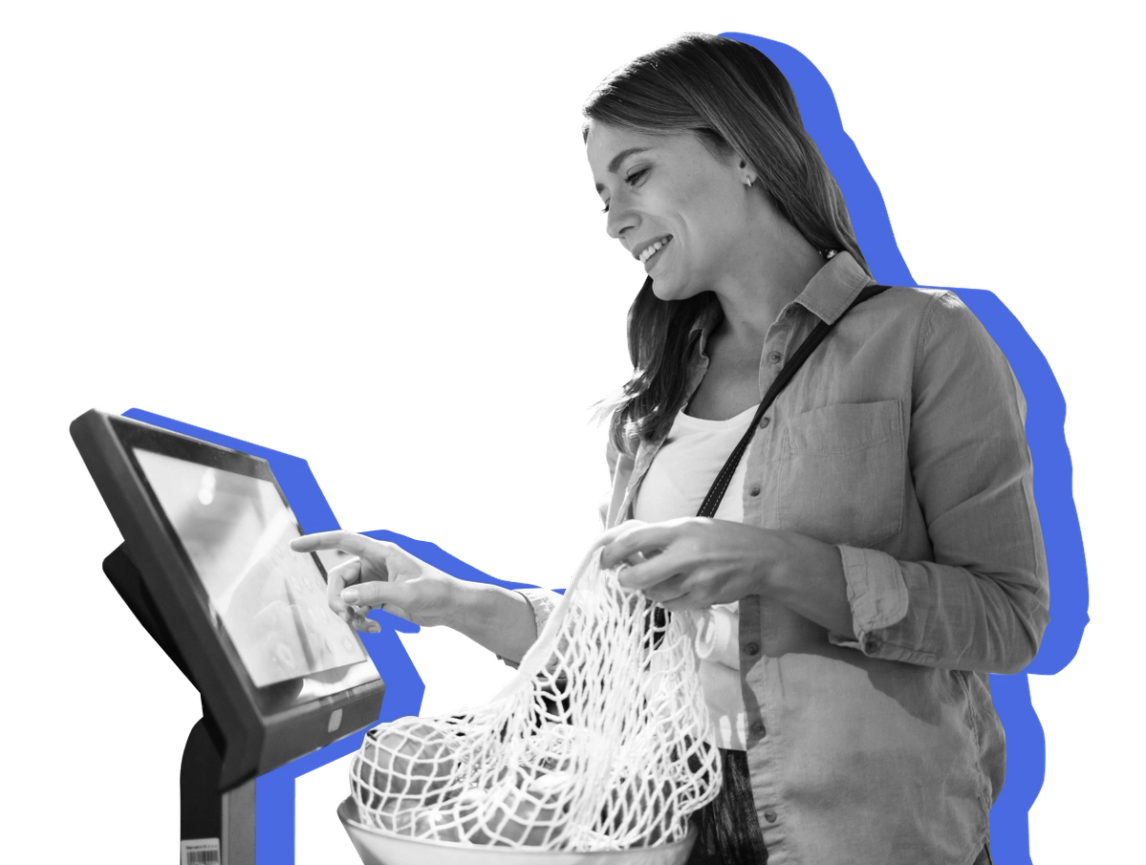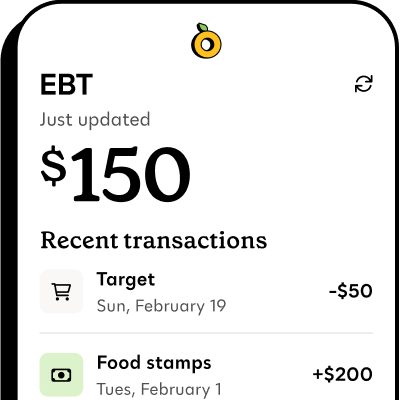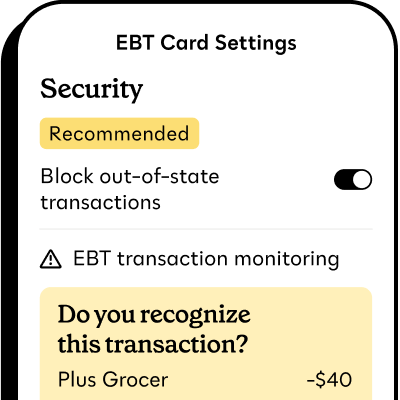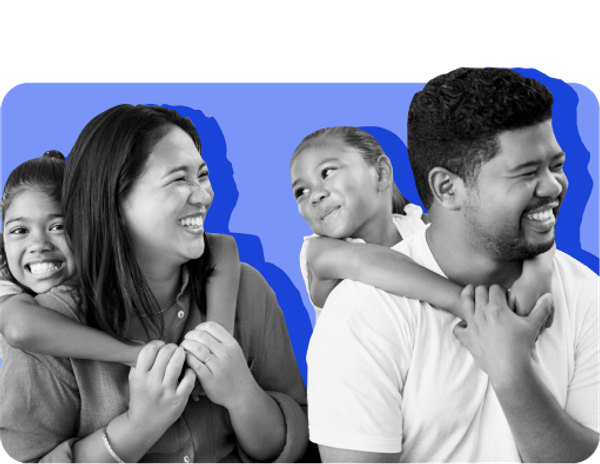
SNAP, which stands for the Supplemental Nutrition Assistance Program, is a federal program that helps low-income Americans afford food.
- You might also hear it called food stamps, from its paper-stamp origins, or just EBT (which isn’t exactly the same thing).
- In 2023, the average monthly SNAP benefit amount per household was $332, according to the USDA.
- SNAP benefits are issued on an EBT card, a debit-style card that’s loaded with money each month and can be used to buy SNAP-eligible foods at participating grocery stores, convenience stores, farmers markets, or online.
SNAP is funded by the federal government, but every state runs its own program. That means the rules may look a little different depending on where you live. Whether you’re ready to apply for food stamps or just curious, here’s what to know about SNAP.

Propel is the #1-rated EBT balance checking app
How do SNAP benefits work?#how-do-snap-benefits-work
Once you’re approved for SNAP, your state will send an EBT card in the mail. Your EBT card works just like a debit card, but you can only use it on eligible groceries.
Each month, your state will load a set amount of money onto your EBT card based on your family size, income, and expenses.
You can use the SNAP benefits on your EBT card to buy eligible foods, like fruit, vegetables, dairy, meat, bread, snacks, and drinks. Some surprising things, like seeds, protein powder, and energy drinks, also qualify for purchase with SNAP.
Here’s what to expect after you qualify for SNAP:
- You’ll get your EBT card within 30 days of applying (or sooner in some emergency cases)
- Your benefits reload automatically every month on the same date
- You’ll need to recertify your SNAP benefits every 6 to 12 months depending on your state
- You can download a trusted app like Propel to check your EBT balance, see upcoming deposits, and more
How much do you get on SNAP?#how-much-do-you-get-on-snap
In 2023, the average SNAP household received $332 per month in benefits, according to the USDA.
SNAP households with children received an average monthly benefit amount of $574.
The exact amount you’ll get if you qualify for SNAP depends on a few different factors, like how many people live in your household, what your income is, and where you live.
Who can get SNAP?#who-can-get-snap
SNAP is for people with low incomes. That can include families with kids, older adults, people with disabilities, and single individuals.
SNAP has income limits; the exact amount depends on your state and the number of people in your household.
A household of one person typically needs to make $2,510 or less per month before taxes in order to qualify for SNAP, and may need to meet other requirements too.
- Household size, income, and expenses can affect SNAP eligibility
- Most adults ages 18 to 64 without children or other dependents need to meet work requirements in order to get SNAP (unless they’re exempt)
- Seniors age 60 and older may qualify for SNAP more easily and don’t need to meet work requirements
- College students can qualify for SNAP under special rules
- Non-U.S. citizens may be able to get SNAP, but only certain groups, like Green Card holders and people with other qualifying statuses
How to apply for SNAP#how-to-apply-for-snap
You can apply for SNAP through your state’s SNAP office online.
Oklahoma
OKDHS Live!
Oklahoma
OKDHS Live!
Washington D.C.
Washington D.C.
Or by mail, by phone, or in person. You’ll need to provide some documents to get SNAP, like:
- Proof of identity
- Proof of income (like pay stubs or SSI letters)
- Housing expenses or bills
You can also help someone else apply for SNAP.
What happens after you apply for SNAP?#what-happens-after-you-apply-for-snap
After you apply for SNAP, your state will review your application and schedule a phone or in-person SNAP interview.
You will probably be assigned a case manager, someone in charge of managing your SNAP case and helping you apply. Be ready to answer questions and provide extra documents if needed.
Then, you’ll get a SNAP decision letter. If you’re approved, you’ll receive:
- A SNAP approval letter which lists how much money you’ll get every month and other important information
- Your EBT card in the mail in a plain white envelope
- Instructions for using your benefits
Unless you qualify for emergency SNAP (which can start in under a week), you should hear back about your SNAP application and get benefits within 30 days.
What can I buy with my EBT card?#what-can-i-buy-with-my-ebt-card

You can use your EBT card at participating grocery stores, convenience stores, farmers markets, and online to buy any SNAP-eligible food.
Many states now allow you to shop online with your EBT card, including at Amazon, Walmart, Target, and many local grocers.
You can use your SNAP benefits to buy foods like:
- Fruits and vegetables, either fresh, frozen, dried, or canned
- Meat and seafood
- Beans and nuts
- Drinks like water, juice, and sparkling water
- Cereal and bread
- Dairy like cheese, yogurt, and milk
- Snacks like popcorn, chips, pretzels, and crackers
You can’t use SNAP for ineligible items like alcohol, tobacco, vitamins, medicine, pet food, or household supplies like diapers, wipes, toilet paper, or paper towels.
You also can't use your SNAP benefits to buy hot food, takeout, or fast food, unless you qualify for a special program called the Restaurant Meals Program.
To find a store near you that takes SNAP, try the USDA store locator tool or download the Propel app and see a map of stores near you that accept EBT.
How to manage your SNAP benefits#how-to-manage-your-snap-benefits
Once you’re approved, you’ll need to keep your account active and up to date so you can keep your SNAP benefits active for as long as you need them.
- Report any changes in contact information to your SNAP office immediately so you don’t miss any important notices from your state
- Report changes in income, expenses, or household size to your local SNAP office within 10 days to avoid accidental food stamp fraud
- Check your EBT balance regularly and monitor upcoming deposits through a balance-checking app like Propel
- Use your EBT card at least once every three months so your SNAP benefits don’t expire
- Change your EBT card PIN every month to protect your benefits from EBT theft
- Recertify your SNAP benefits when your state asks you to
- Watch out for scams—learn how to help prevent theft and use Propel’s security features to keep your EBT card safe
- If your EBT card is lost or stolen, contact your state’s EBT customer service phone number right away

Help keep your EBT card safe from theft with Propel
Other things you might qualify for with SNAP#other-things-you-might-qualify-for-with-snap
If you qualify for SNAP, you may also be eligible for other helpful programs that can make a big difference for you and your family. That can include:
- Free admission to local museums and zoos and discounts on things like Amazon Prime memberships and certain utilities.
- Discounted internet service which can lower your monthly bill or help you get free devices in some cases
If you qualify for SNAP, you may also qualify for other government assistance programs like:
- Free school meals for your children and Summer EBT when school isn’t in sessions
- WIC benefits if you’re pregnant, postpartum, or have a child under five years old
- TANF, also called cash EBT or welfare—monthly cash assistance for families with kids
- Medicaid—free or low-cost health coverage for low-income people and families
If you’re unsure where to start, try calling 211 or visiting the 211 website for local resources in your area, including housing help, food pantries, job training, and more.







